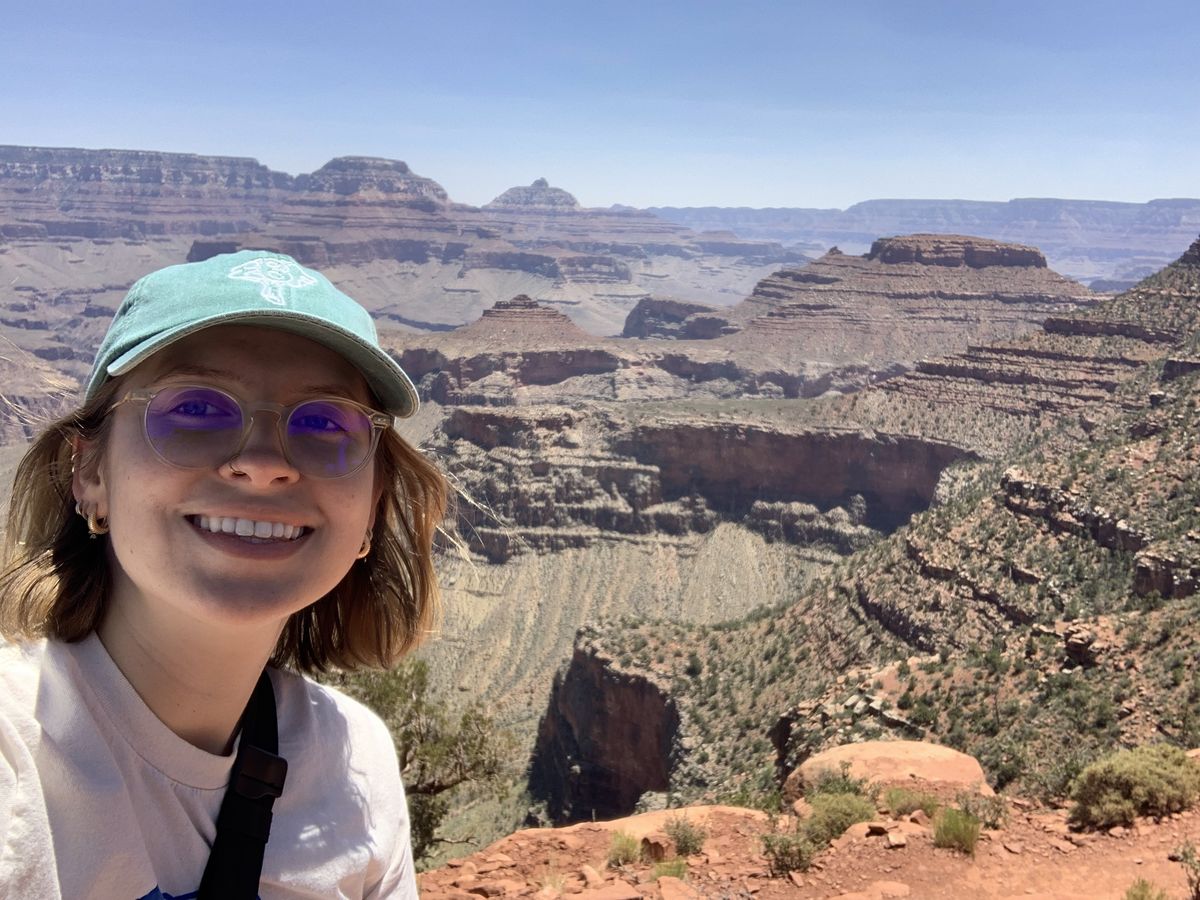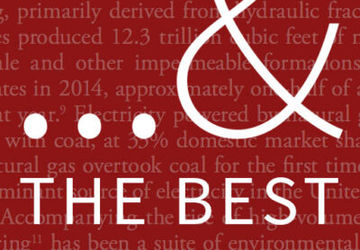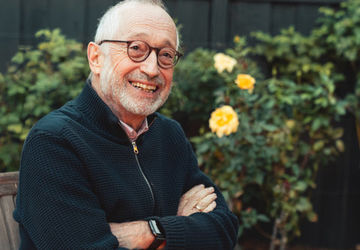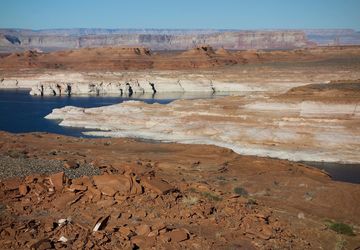Summer intern Carly Taylor pauses for a photo during a visit to the South Rim of the Grand Canyon.
Carly Taylor
Hometown: Cold Spring, KY
Major: Comparative Literature ‘23
Internship: Natural History Institute
Natural History Institute intern Carly describes falling in love with the Mogollon Highlands ecoregion and leveraging digital platforms to share its natural beauty
The Mogollon Highlands is a unique ecoregion that extends from northwestern Arizona to southeastern New Mexico. It’s where the canyons of the Colorado Plateau meet the cacti of the Sonoran Desert. As a transitional zone where the northern limits of certain species meet the southern limits of others, it’s incredibly biodiverse and vastly understudied.
One pillar of the mission of the Natural History Institute in Prescott, AZ is to draw attention to this fascinating and underappreciated ecoregion. But the NHI’s aspirations, while firmly rooted in the local ecosystem, extend far beyond it–we seek to connect practitioners of natural history across the country and the world to useful resources and a powerful community of nature lovers.
This summer in my position as Media Arts Intern at the NHI, I’ve been grappling with the question of how we can continue to serve our passionate local audience of scientists, teachers, amateur naturalists, and retirees in Prescott, while also reaching for a wider, more demographically diverse public of natural historians. Each year, the NHI offers dozens of in-person lectures and field excursions, which are very well attended by the enthusiastic local community. Video recordings of these events are streamed online so that the information they contain is accessible to anyone–but what is more challenging to translate to the digital space is the warm sense of community and the contagious passion that one feels at these in-person events.
This passion is essential to the NHI’s mission, because natural history is not just about learning the names of a bunch of plants or insects–it’s the practice of being curious and paying careful attention to the natural world, in order to fall in love with nature and cultivate a reciprocal connection with it.
I’ve focused my efforts this summer on the digital spaces where the NHI models this connection with the nature of a specific ecoregion to a wider public. On the NHI Youtube channel, our video series “Notes from the Field” captures the charismatic personalities and vast knowledge of our Executive Director Bob Ellis and Program Director Jennie Tutone, as they venture into beautiful locales of the Mogollon Highlands to check out ecological concepts in action. These videos are of interest both to our local audience interested in the native species and exciting spots for exploration in this region, as well as a national audience of natural history practitioners looking for inspiration and models. In our new series “Unlocking Nature’s Hidden Relationships,” I’m using my creative eye and editing skills to make our videos more dynamic, engaging, and playful, while still providing great information to viewers. I’ve also been creating engaging content to grow all our social media pages, with a focus on our newly created TikTok account. On these platforms, we can reach a younger, more diverse audience with nature content that sparks curiosity, stimulates conversation, and inspires people to look with fresh eyes on their own surroundings, wherever they may be.
I myself have fallen in love with the Mogollon Highlands this summer, so much so that I’m staying on at the NHI after the end of my internship, as their new Communications Coordinator. In this position, I look forward to continuing to find new ways we can leverage digital platforms for sharing resources and fostering communities of naturalists whose passion will advance conservation efforts and the fight against climate change.



